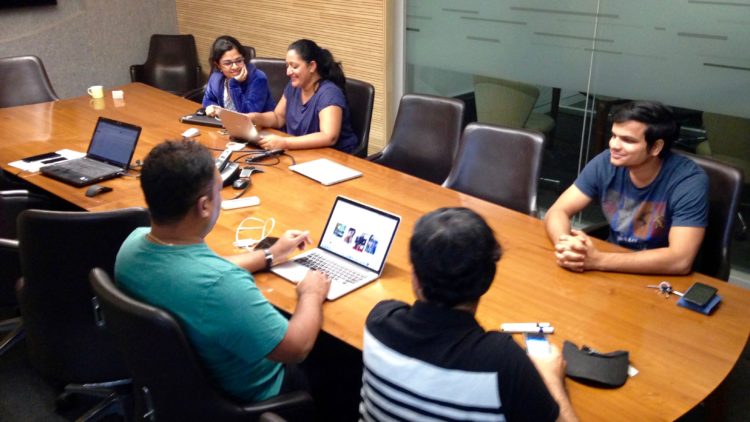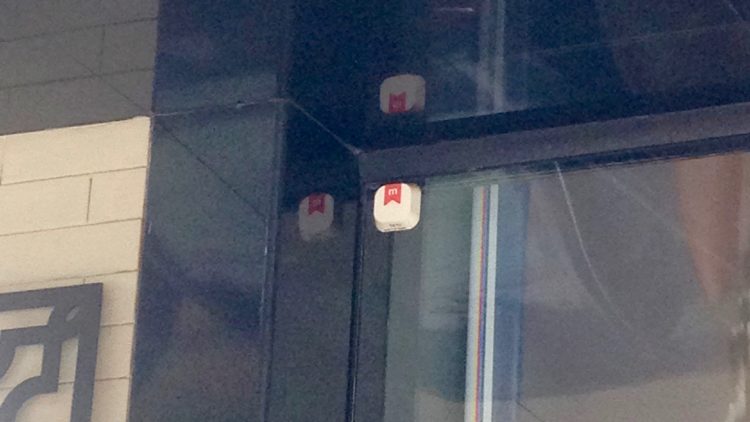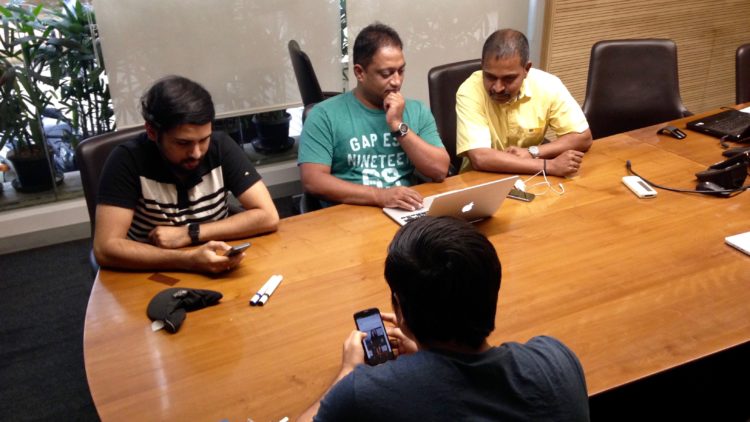
Photo credit: iakovenko / 123RF.
The morning after a Saturday night that had no chill, you find yourself walking in a daze down Bangalore’s main shopping street. Post-brunch, you don’t want to retreat into your apartment to live out the rest of the weekend as a Netflix-consuming lump, so you stroll down the street in the vague hopes of finding something better to do. You’ve been feeling the need lately to find a casually edgy shirt that makes a statement. You saw some actor wearing one on TV last week and need the same aesthetic in your life.
Three stores down, you’re really starting to regret your decision to walk anywhere in the bright, bright sun, when your phone goes off. It lets you know that just across the street is a white t-shirt with a faded stripe pattern. The print? No chill, no service.
In the midst of your fatigue, you feel a zap of excitement. That’s the perfect shirt. You prepare to cross the street and find your phone has another message for you – because you’re in the vicinity, you get 5 percent off if you buy it today.
Bridging a gap

Part of the Mobmerry team meets in their Bangalore office. Krishna wears the green shirt. Photo credit: Tech in Asia.
If you’re like investors around the world, the phrase “ecommerce in India” is likely to bring to mind bells and whistles. Still, ecommerce in the country only makes up 1 percent – or even less – of overall sales. The remaining 99 percent is where Bangalore-headquartered startup Mobmerry sees its opportunity.
The majority of India’s stores aren’t owned under names of international giants like Raffles or Walmart – they’re either local franchises or individually operated. Mobmerry began its approach last October by targeting a hyperlocal area, Indiranagar – a single neighborhood in Bangalore that includes the city’s biggest shopping street.
Ecommerce in India only makes up 1 percent – or even less – of overall sales.
For last mile deliveries in Bangalore, Mobmerry either utilizes the store’s own delivery services. If it doesn’t have one, it uses Bangalore-based concierge startup Dunzo, which specializes in hyperlocal delivery in Bangalore. Customers may also choose to buy using the app and pick up the product at the store. If an item is out of stock, a shopper may request it ordered to the store or ask for a notification when it’s back on shelves.
Customers may also use the app for local discovery and order items straight to their residences, where it will be delivered in two hours.
A future goal for the company is to improve upon that feature. “[In the future] you can also request not just one retailer but retailers around your location to see if they have a similar product,” says Krishna.
For customers
Mobmerry’s beacons. Photo credit: Mobmerry.
Shoppers who download the Mobmerry app can browse items in stores nearby. In a way reminiscent of Pinterest, they may add items they like and have the option of receiving notifications when those items are within walking distance, on sale, etc.
The majority of India’s stores aren’t owned under names of international giants like Raffles or Walmart.
If I have a long list of things I want to buy, that can sound like a lot of notifications. Co-founder Krishna Prasad assures me that’s not the case. After giving permission for companies to send notifications, all notifications from the day will be bundled into one.
Shoppers may also upload pictures of clothes or accessories they like, in which case an image recognition AI will search nearby stores for items in a similar color or style. Mobmerry’s image search feature is still in beta, but Krishna demonstrates it to me by taking a picture of his watch and uploading it onto the app. After a short pause, results showing watches in similar colors come back. All of them are located reasonably close to the Mobmerry office.
Products can also be sent as gifts using the app – Krishna says that this option is used most often for home decor.
For merchants
Through a monthly subscription to a software-as-a-service (SaaS) analytics platform, merchants partnered with Mobmerry get access to tech that helps them keep track of their customers and sales by item, time, and other factors. Through the platform, they may also send an immediate notification blast to customers if they decide to have a sale or run a deal.

Found it. Photo credit: Tech in Asia.
Merchants also receive a beacon – a sensor to put on their door that can alert customers with the app in the vicinity if the store has an item they’ve been looking for. After seeing this palm-sized device, I went hunting inside stores in Indiranagar to find it for myself, only to come up empty-handed (and really odd-looking to the store sales reps). Feeling sheepish, I went to Krishna for help, and he gave me an exact location, where I finally found the elusive sensor on the corner of the shop’s front door.
Growth room

Photo credit: Tech in Asia.
Mobmerry users aren’t charged anything extra for delivery using the app. Stores using the app pay US$15 per store – that includes the tech license and the beacon. For larger brands using the company, like Lee or Kazo, they pay US$750 to use the product software across all of their stores (plus beacons for each one).
The average shopper buying using Mobmerry spends US$36. Across mobile (Android and iOS and web, it has 35,000 active users. It gets an average of 100 orders per month for its 78 brands and 120 stores. Krishna says 78 percent of users are repeat users.
As the company aims to expand into different hyperlocal pockets all over India, a strategy it pivoted to in February, Krishna lays out the startup’s areas for improvement – more seamless ordering from stores and getting more partner stores to actually use the shop analytics the program provides.
“Some of them are using it, some of them have not even opened it,” he tells Tech in Asia.
Converted from Indian rupees. US$1 = INR 66.57
This post The startup doing the splits on online and hyperlocal commerce in India appeared first on Tech in Asia.
from Tech in Asia https://www.techinasia.com/mobmerry-straddles-ecommerce-hyperlocal-india
via IFTTT
No comments:
Post a Comment